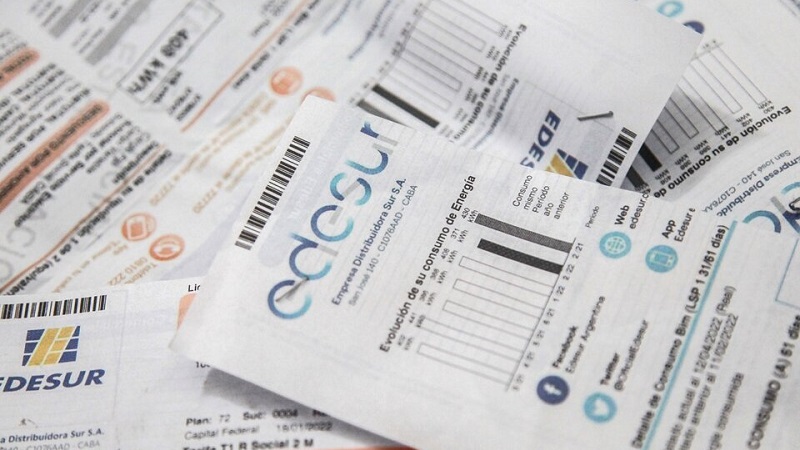
Image: Jorge Larrosa
One of the main chapters of the adjustment of the Milei era is the rate increases in public network services used by households.
How much did public services increase?
This Thursday, August 8, the Institute of Statistics and Census of the Autonomous City of Buenos Aires published the Consumer Price Index. Although it only covers the City of Buenos Aires, it is important to see what it says because it has updated data for the month of July.
- Water: year-to-date up to July, increased by 248%
- Electricity: increased by 293%
- Gas: increased by 448%
These increases reflect only the increase in rates, but as electricity and gas consumption also increases during the winter, there are households that received bills that increased by more than 1,000% compared to December.
In addition to all this, there is a 4% increase implemented since August.
Until July, the increases in these public services were at least 2.5 times higher than the general inflation of the City (98.5%).
What happened to wages?
The INDEC data goes up to May. But if we assume that wages outperformed inflation in June and July and increased by 6% each month (not a very realistic assumption), we have that wages in all segments (formal, private and public, and informal) increased by 95% in the year to July (if the assumption we made is met).
That is, they increased less than inflation. At the same time, the rate increases exceeded wages by at least 2.6 times.
According to the Rates and Subsidies Observatory of the Interdisciplinary Institute of Political Economy (IIEP) dependent on the UBA and CONICET, in July the rates for water, electricity, gas and transportation came to represent 15% of the average salary, reaching an amount of about $142,645.
What is the argument for the increases?
The downside of the rate hikes is the reduction of subsidies that, in reality, are not for users, but for business profits. This is in line with what the IMF demands and the Frente de Todos government had already begun to implement.
Let us remember that Milei’s government seeks to reduce public spending by reducing subsidies, but, in turn, the resources released go into the cesspool of public debt payment, which benefits financial capital.
What is the forgotten detail in the public debate?
According to a CIFRA report, Metrogas earned 19 billion pesos in the first quarter of 2024, an increase of 1,630% compared to the same period in 2023, and Edenor (which is owned by the Vila-Manzano Group, one of Sergio Massa’s main supporters) earned 51 billion pesos in the first three months of the year. That is, both companies earned $769 million per day.
Naturgy, in its balance sheet as a multinational company, also shows a slight year-on-year increase in its profits measured in Euros during the first half of the year. It does not show the data in pesos, but they surely increased more than those measured in dollars because profits in euros were surely reduced by the effect of the devaluation.
To do?
First of all, it is necessary to debate whether the most important criterion is to increase business profits or to consider public services as an essential right for the entire population.
If one defends the second criterion, great savings can be made by eliminating corporate profits, nationalizing the entire system, democratic management by its own workers, by specialized technicians, and with the participation of popular user committees.
This would allow for rational planning, guaranteeing access to a cheap and quality service for the entire population, on the path to lowering energy costs based on productive development and carrying out the energy transition.
Source: www.laizquierdadiario.com

